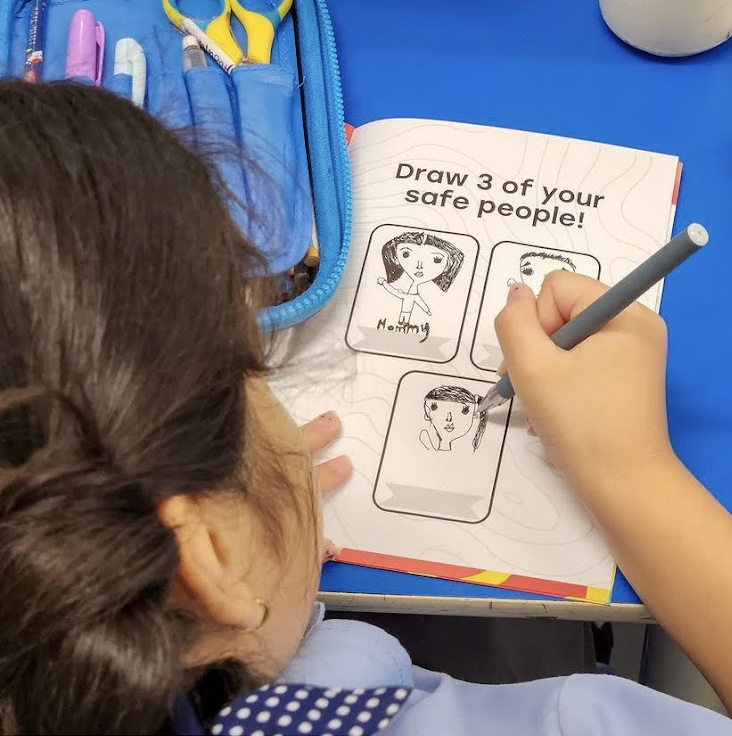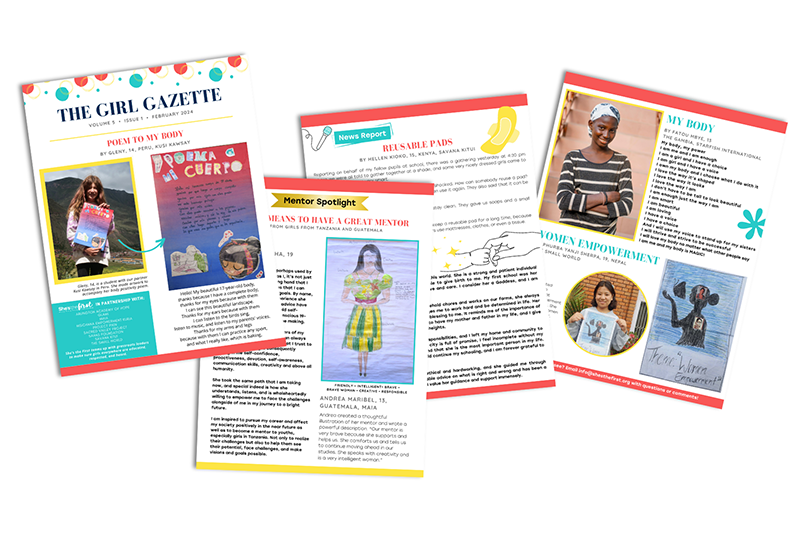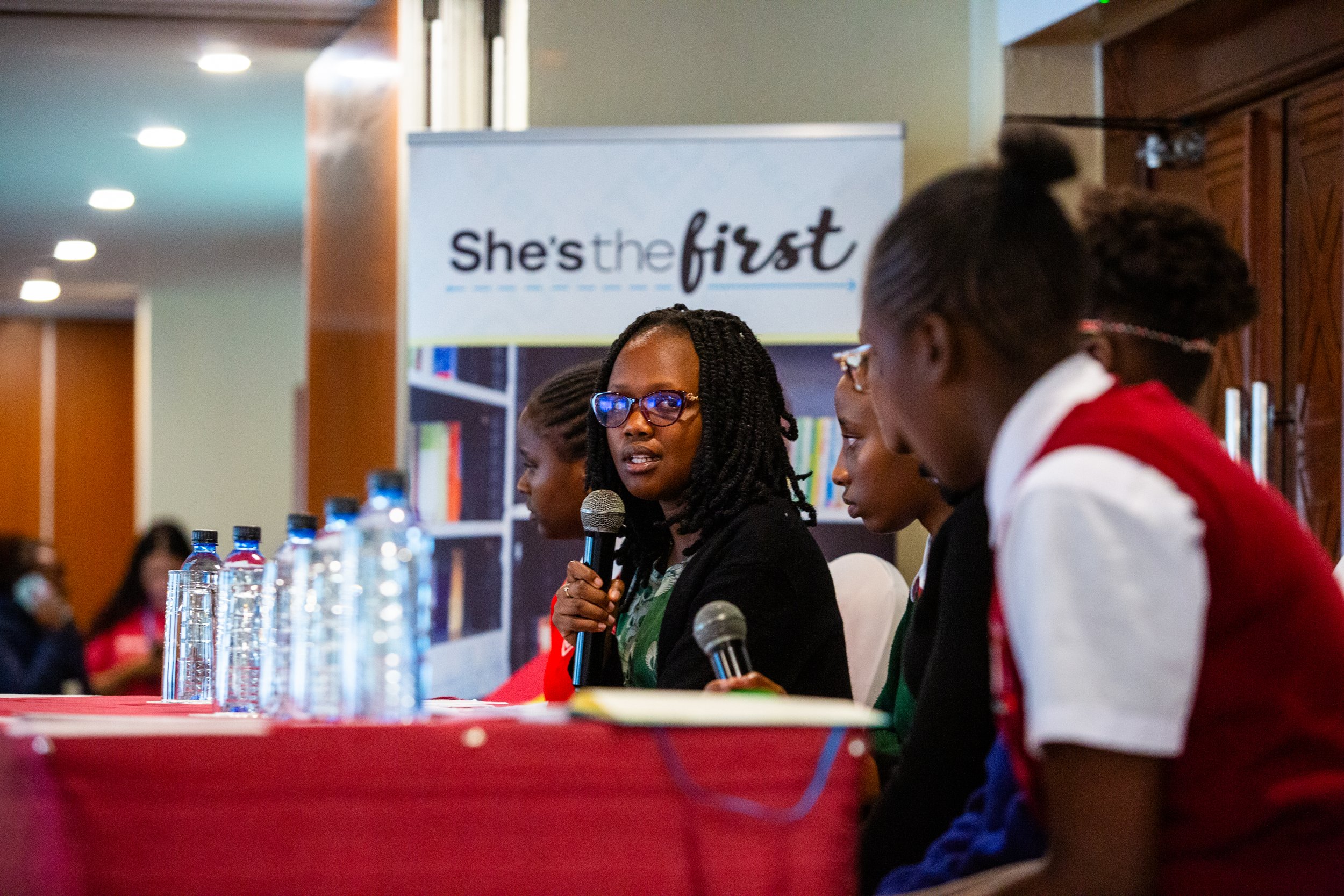For many girls growing up in Arizona, conversations about women’s rights don’t begin at home. In Chandler, a community shaped by strong conservative values, high school students often absorb the message that equity and reproductive rights are controversial, even dangerous, topics to speak about. “Our chapter invited something new into our school. Girls are being exposed to new ideas; some girls are the first person in their families to even consider thinking progressively about women’s abilities,” says 17-year-old Siyaa Poddar, president of her She’s the First chapter.
That reality came crashing into focus after the 2024 election. ” Adults protested in her community against women’s rights. For Siyaa, the moment crystallized what so many girls were already feeling: fear, frustration, and isolation.
“It was very scary. There were protests on campuses against women’s rights and women’s education.. What can you even do as a high schooler when the problem feels so much bigger than you?”
A Turning Point: The Election Debrief
A week after the election, She’s the First hosted a national election debrief for girls across our chapters. For Siyaa and her peers, it was a soothing balm.
Sometimes it feels like you’re just one kid in Arizona,” she said. “But then you’re reminded that it’s bigger than you—that there are girls across the country also trying to figure out what to do. That conversation grounded us.
The debrief turned fear into resolve.
“Even just existing is pushing back. Keeping spirits up is an actionable, tangible item. Doing events that remind people why you exist in the first place is really important.”
With that renewed clarity, the Arizona College Prep chapter turned their energy toward something bold: creating an event that could both lift spirits and make their presence visible on campus.
March With Women: A Fun Run With Purpose
On March 1st, 2025—the first day of Women’s History Month—Siyaa and her team launched their first-ever Fun Run, cleverly framed as a lighthearted school activity but carrying a deeper message: March with Women.
The event drew more than 80 participants, including boys who attended as allies for women’s and girls’ rights. Student athletes, honor societies, and clubs across campus joined, alongside 5 other She’s the First chapters from nearby schools. Local organizations like the Spanish Honor Society, Indigenous Alliance, Girl Up, and the Arizona Coalition of Women came too, setting up booths and sharing resources.
“I call myself the cold email queen. I reached out to so many groups that Instagram temporarily banned me for messaging too many people. But it worked—we built a coalition.”
Together, they raised over $300 in donations, but the real success was in visibility and solidarity.
Siyaa (middle) and 2 fellow chapter members
“Even if these organizations have different perspectives on how to achieve equity and equality, we all want the same thing. Coming together in such a positive, cherished way was really important.”
Lessons in Leadership
The Fun Run wasn’t without challenges. Siyaa admitted to battling doubt as the event approached.
Siyaa, 17, U.S. President, STF ACP
“The what-if demon kept whispering: What if no one shows up? What if it all falls apart? But you can’t let that stop you. You’ll never know unless you try.”
She also learned the importance of safety and inclusivity. “We called it a Fun Run on our flyers because we didn’t want to attract negative attention. We wanted it to feel open and accessible to everyone.”
Looking ahead, Siyaa is already dreaming bigger. She hopes to expand the run into a larger community event, potentially hosted at Arizona State University, to include more chapters and nonprofits statewide.
And she’s thinking long-term. With her chapter’s leadership made up mostly of juniors, she’s building a succession plan: younger students will shadow officers this year to ensure the chapter continues after her graduation.
“Passing on knowledge is just as important as being the first. The benefit of being the first is that someone else doesn’t have to be.”
A New Kind of Hope
For Siyaa, the journey has been about more than one event. It’s about changing how girls in her community see themselves.
“There’s this notion that women haven’t broken into certain spaces yet—that you’ll have to do it all by yourself. But that’s not true. There are already girls in those spaces, waiting to support you. I think passionate people enpassion other people. And that’s what She’s the First does.”
She knows the political climate in Arizona remains uncertain. But she believes the resilience she’s seen in her peers is stronger.
“I don’t know if the situation has gotten better. But I know the girls are ready to work. They’re resilient. They’re going to keep going.”
Advice for Other Girls
When asked what she would tell other chapters that want to host a similar event, Siyaa offered practical wisdom:
Start early.
Don’t plan alone—collaborate.
Meet your community where they are.
“There are women in every club, even if the club isn’t about women’s rights. Find the pockets of your community and meet them there.”
And most importantly:
“Have faith in your event. The roots you plant will grow. Your community will show up.”
In a state where chants of “your body, my choice” still echo, girls like Siyaa Poddar are running toward something different: solidarity, resilience, and change. With courage, creativity, and community, they are proving that no problem is too big to tackle—especially when you don’t face it alone.










